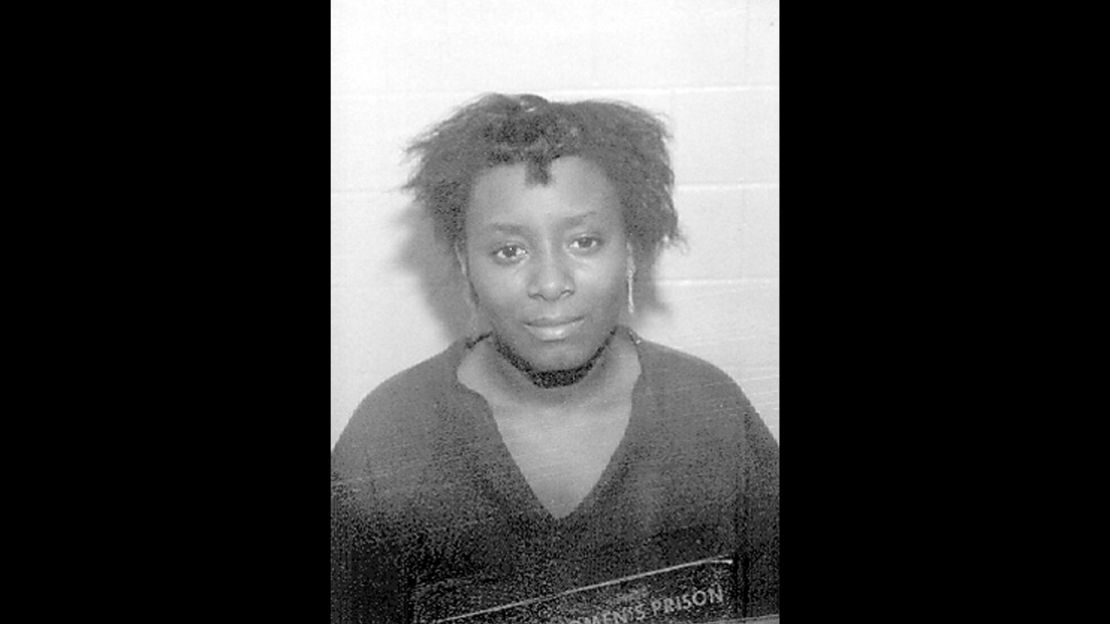Story highlights
NEW: Cooper "would take it back in a heartbeat if she could," victim's grandson says
Paula Cooper was 16 years old when she was sentenced to death for murder
She stabbed 78-year-old Bible teacher Ruth Pelke in the stomach and chest 33 times
Victim's grandson: I realized forgiveness had taken place, and it brought healing to me
Paula Cooper was just 16 years old when she became the youngest person on death row in the United States.
That was in 1986.
On Monday, after 27 years behind bars, Cooper walked out of Indiana’s Rockville Correctional Facility a free woman. She emerged around 10 a.m., said Douglas S. Garrison, chief communications officer for the Indiana Department of Corrections.
Cooper had an unlikely ally supporting her release: Bill Pelke, the grandson of the woman she killed.

The events that ensnared both families started when Cooper was 15 and devised a plan to steal money with her friends.
Arizona woman’s murder conviction, death sentence overturned
After smoking marijuana and drinking wine, they went to the home of Bible teacher Ruth Pelke, 78, armed with a knife. Cooper struck Pelke with a vase, cut her arms and legs, then stabbed her in the chest and stomach 33 times, according to Indiana court records.
Their loot? Just $10.
An Indiana judge sentenced Cooper to death on July 11, 1986, when she was 16.
More than 2 million people signed a petition asking the Indiana Supreme Court to overturn Cooper’s death sentence.
Maryland legislature votes to end death penalty
Pope John Paul II personally appealed to Indiana Gov. Robert Orr on behalf of the teen.
But perhaps the most surprising advocate for Cooper’s life was Pelke, who said he forgave Cooper for the murder three months after she was sentenced to death.
“I became convinced beyond a shadow of a doubt that my grandmother would have had love and compassion for Paula Cooper and her family,” Pelke told CNN. “I felt she wanted someone in my family to have that same sort of love and compassion. I didn’t have any but was so convinced that’s what she would have wanted, I begged God to give me love and compassion for Paula Cooper and her family and do that on behalf of my grandmother.”
Exonerated inmates protest Florida death row law
He said it was “a short prayer,” but it was answered.
“For a year and a half, whenever I thought about my grandmother, I always pictured how she died. It was terrible,” he said. “But when my heart was touched with compassion, forgiveness took place. I knew from that moment on when I think about her, I would no longer pictured how she died, but I would picture how she lived, and what she stood for, what she believed in – the beautiful, wonderful person she was.”
Pelke tried to visit Cooper in 1986, but the two didn’t come face to face until eight years later. The two struck up an unlikely friendship over the years, exchanging messages through the prison e-mail system every week. And in 1989, the Indiana Supreme Court reduced Cooper’s death sentence to 60 years in prison.
Pelke said he would like to help Cooper with her transition to life outside of prison.
“I hope that we’re able to go out and have a meal. I’ve told her when she got out of prison I’d like to buy her a computer and I have a friend that would like to buy her some clothes. Hopefully we’ll get together within the next few days and go shopping,” he said.
See also: Florida man’s Death Row Diary
Pelke said he’s never asked Cooper to explain her actions – “There’s not a good answer for that” – but said she has shown remorse for the killing.
“She would take it back in a heartbeat if she could, but she knows she has to live with it for the rest of her life,” he said. “She knows she took something valuable out of society. She wants to try to give back. She wants to to help work with other young people to avoid the pitfalls that she fell into. She wants to try to give back to society.”





